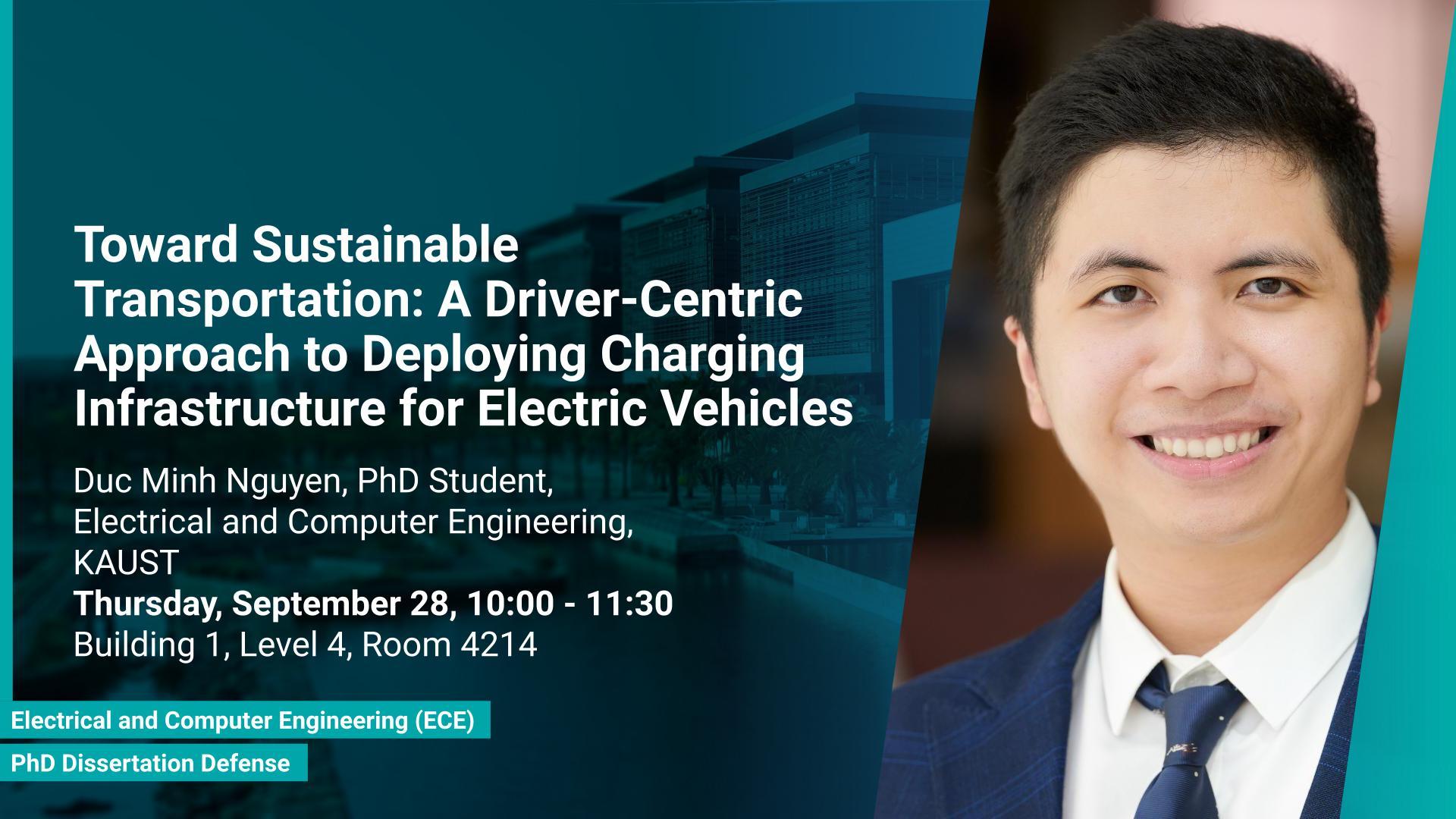Event Start
Event End
Location
Abstract
Whether the future of transportation is going to be electric or not is no longer a question. Electric vehicles (EVs) offer several benefits toward global sustainability. However, without a variety of charging infrastructures that cover diverse forthcoming charging needs, the speed of vehicle electrification may be slow and limited. In the coming years, we project that charging stations will still likely meet most personal demands. However, novel charging alternatives such as dynamic charging systems, i.e., electrified roads that wirelessly charge EVs on the go, will fit into various public and commercial scenarios. In this thesis, we present a driver-centric approach to planning these infrastructures. We first investigate the deployment of wireless dynamic charging roads with a view to accelerating EV adoption rate. We propose a traffic-based probabilistic deployment strategy, statistically quantify its impact, and apply the strategy to two case studies of real traffic in New York City (USA) and Xi'an (China). Next, we extend the charging infrastructure to comprise both charging stations and dynamic charging roads. We introduce a deterministic deployment plan based on historical traffic data and demonstrate our method in a case study conducted in New York City. We find that dynamic charging considerably extends the driving range of popular EV models in urban mobility. For example, when only 5% of the existing roads in New York City are equipped with this technology, an EV model such as the Nissan Leaf will approximately maintain its battery level without stopping to recharge. Moreover, the deterministic deployment plan rooted in past traffic data can significantly enhance the current charger distribution in New York City, improving range, time, and cost metrics. Specifically, the Nissan Leaf taxi would experience a 40% reduction in time spent seeking and using a charging facility, and gain a 50% increase in range after 20 km of driving, compared to the existing charging infrastructure layout. Utilizing real-world datasets, our study provides reliable estimations and offers a valuable tool for both public and private sector organizations involved in planning EV charging infrastructure locations.
Brief Biography
Duc Minh Nguyen was born in Hanoi, Vietnam. He received the M.S. degree in Electrical and Computer Engineering from King Abdullah University of Science and Technology (KAUST), Saudi Arabia, and the B.Eng. degree in Mobile Systems Engineering from Dankook University, Republic of Korea, in 2020 and 2018, respectively. He is currently pursuing the Ph.D. degree with the Electrical and Computer Engineering Department, KAUST, Saudi Arabia. His research interests include sustainable transportation and machine learning.


